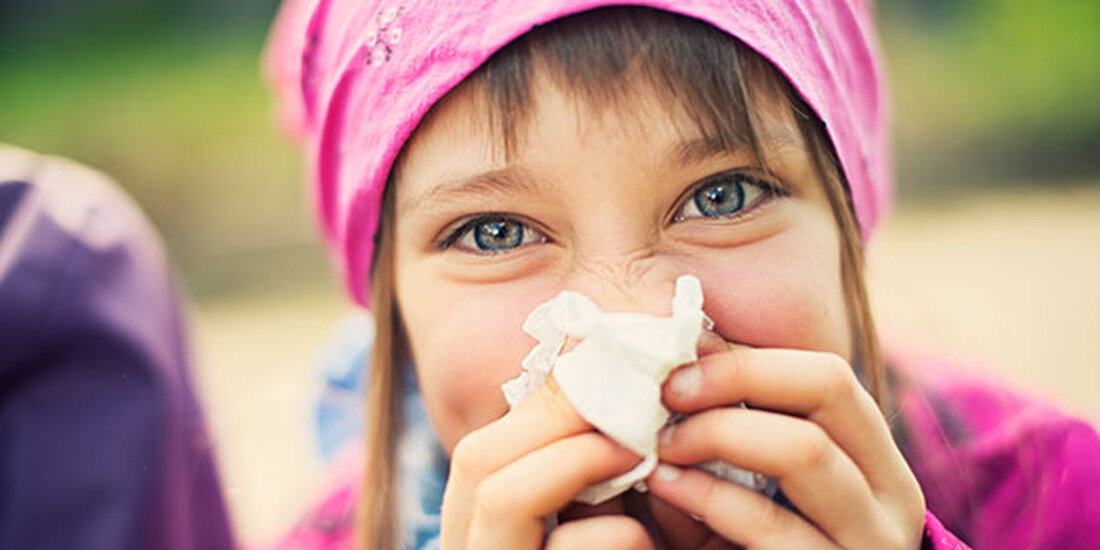Allergies - Ayurvedic treatment
Allergies refers to an exaggerated reaction of our immune system to physical contact with certain foreign substances. These foreign substances are usually harmless. But in a person whose body is prone to allergies, these foreign substances are recognized by the body and part of the immune system is turned on. Substances that cause allergies are called “allergens”. Examples include pollen, dust mites, mold, dander and certain foods. Any substance, regardless of its origin, is a possible allergen. Allergens cause the production of immunoglobulin E (IgE), an antibody that we all have in small amounts. Allergy sufferers, on the other hand, produce IgE in abnormal amounts. Normally, this antibody is important to protect us from parasites...

Allergies - Ayurvedic treatment
Allergies refers to an exaggerated reaction of our immune system to physical contact with certain foreign substances. These foreign substances are usually harmless. But in a person whose body is prone to allergies, these foreign substances are recognized by the body and part of the immune system is turned on. Substances that cause allergies are called “allergens”. Examples include pollen, dust mites, mold, dander and certain foods.
Any substance, regardless of its origin, is a possible allergen. Allergens cause the production of immunoglobulin E (IgE), an antibody that we all have in small amounts. Allergy sufferers, on the other hand, produce IgE in abnormal amounts. Normally, this antibody is important to protect us from parasites, but not from other allergens.
According to Ayurveda, food is only alien when we eat it. These aliens are treated by the body's Agni (Fire) to convert into acceptable foods for the body. When the Agni does not function properly, toxins are produced and the accumulation of these toxins reduces the body's immunity and leads to immunity-related diseases. Allergies occur when an oversensitive immune system reacts to a common or unusual substance.
The word allergy comes from the Greek words “allos,” meaning different or changed, and “ergos,” meaning work or action. People who are prone to allergies are considered allergic or atopic. Although allergies can develop at any age, the risk of developing them is genetic. It is related to family history of allergy. Ayurvedic medicine has also found that eliminating allergens from the body helps relieve symptoms associated with chronic fatigue syndrome. If a person suffers from allergies throughout the year, he or she may need to consult an Ayurvedic doctor. Ayurvedic medicine works on increasing the sensitivity and nerve strength of the immunity of the respiratory system.
The following Ayurvedic medicines can be used by a person prone to allergies under the guidance of an Ayurvedic practitioner:
– Medicinal oil specially made for Nasya ‘Anu tail’ is very effective.
-For Vata & Kapha – Trikatu, basil, cloves, camphor and coriander can be used.
– To relieve the aggravation of Kapha, Guduchi tablets can be taken along with basil, cloves and camphor.
-For skin allergies – Neem Capsule, Neem Oil, Khadiraristam, Nimbasavam, Haridrakhandam, Agasthya Rasayan.
-For respiratory system allergies – Agasthya Rasayan, Nimbarajanyadi tablet, Spetilin tablet, Septilin syrup, Kanchanar guggulu, Anu oil.
-For healthy resistance against all airborne allergens – Agasthya Rasayan, Nimbarajanyadi Tablet, Spetilin Tablet, Septilin Syrup, Kanchanar Guggulu, Anu Oil-Cutis Oil (Vasu Pharmaceuticals), Haridra Capsules (Himalaya).
– Anti-allergic herbs include: Turmeric, Picrorhiza kurroa, Tinospora Cordifolia and Triphala.
Inspired by Dr Rajesh Nair

 Suche
Suche
 Mein Konto
Mein Konto
